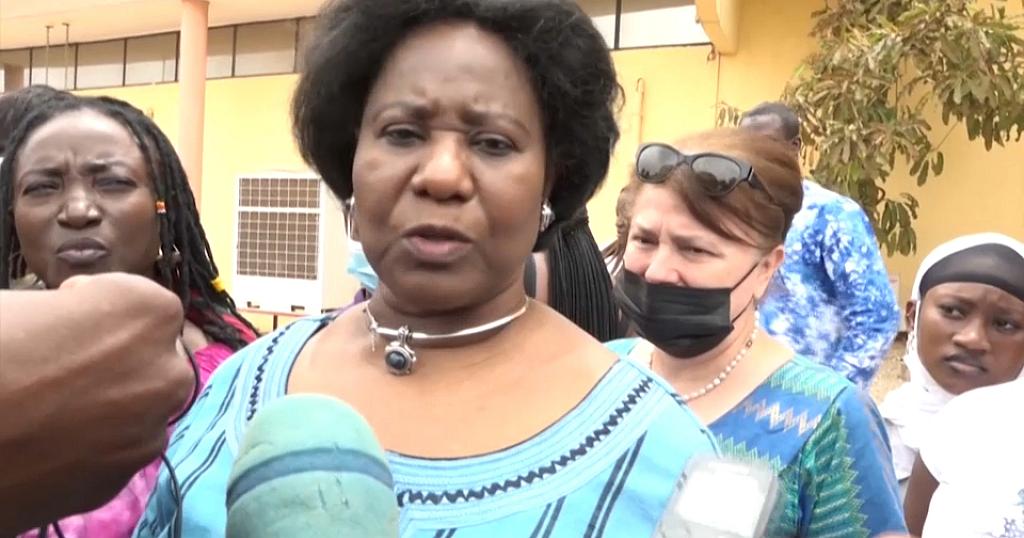275
Reactions have began to follow a military court’s ruling in Burkina Faso on Wednesday that handed down a life term to former president Blaise Compaore over the 1987 assassination of revolutionary leader Thomas Sankara.
Applause erupted in the courtroom as the long-awaited verdict was read out, bringing the curtain down on a case that has afflicted the impoverished and volatile state for 34 years.
Thomas Sankara’s widow, Mariam was also present during the ruling. Mariam hailed the verdict as true justice.
“I think that the Burkinabe people and public opinion now know who President Thomas Sankara was, who the individual was, who the politician was, what he wanted, what those who assassinated him wanted. In any case, I am relieved because we know who he is. He had been called everything in speeches and all that, now we know that he was a man of integrity.”
One of the prosecution lawyers Prospère Farama beamed with smile at the verdict.
“Yes, justice has been done. For the people, because it’s been 34 years of struggle of a people. We must not forget, it’s been 34 years that the Burkinabe people have been fighting against impunity. And with this case, I think that it is a great victory…” Farama told reporters outside the courtroom after the verdict.
The court also issued life terms to Hyacinthe Kafando, an officer suspected of having led the hit squad, and General Gilbert Diendere, an army commander at the time of the assassination, which coincided with a coup that brought Compaore to power. Eight other accused were given jail terms ranging from three to 20 years, while three defendants were acquitted.
But ex-president Blaise Compaore lives in exile in Ivory Coast after being toppled by public protests in 2014, and Kafando has been on the run since 2016. Their trial and sentencing were done in absentia.
“This decision, which comes after a quarter of a century of multiple procedures for us, is welcome. It is at the same time a lesson and Africans should be inspired by it and make sure that no more such tragedies occur in our countries.” Bénéwindé Sankara, another lawyer for the civil parties said.
The six-month trial was avidly followed by many in the landlocked Sahel nation, for whom Sankara’s bloody death remains a dark blot on the country’s history.
Thomas Sankara and his brutal end
A fiery Marxist-Leninist who blasted the West for neo-colonialism and hypocrisy, Sankara was shot dead on October 15 1987, little more than four years after coming to power as an army captain aged just 33.
He and 12 colleagues were killed by a hit squad at a meeting of the ruling National Revolutionary Council.
Discussing the leftwing icon’s death was taboo throughout the 27-year reign of Compaore, Sankara’s comrade-in-arms.
In its closing statement in Wednesday 2 April’s ruling, the prosecution recounted in grim detail a plot to ambush Sankara and his closest followers.
Sankara headed to the National Revolutionary Council meeting for a rendezvous with death, for “his executioners were already there,” it said.
After Sankara entered the meeting room, the hit squad burst in, killing his guards, the prosecution said.
“The squad then ordered president Sankara and his colleagues to leave the room. They would then be killed one by one.”
Ballistics experts told the trial Sankara had been shot in the chest at least seven times by assassins using tracer rounds.
But the defendants said the victims died in a botched attempt to arrest Sankara after he and Compaore fell out over the direction the country’s revolution was taking.


